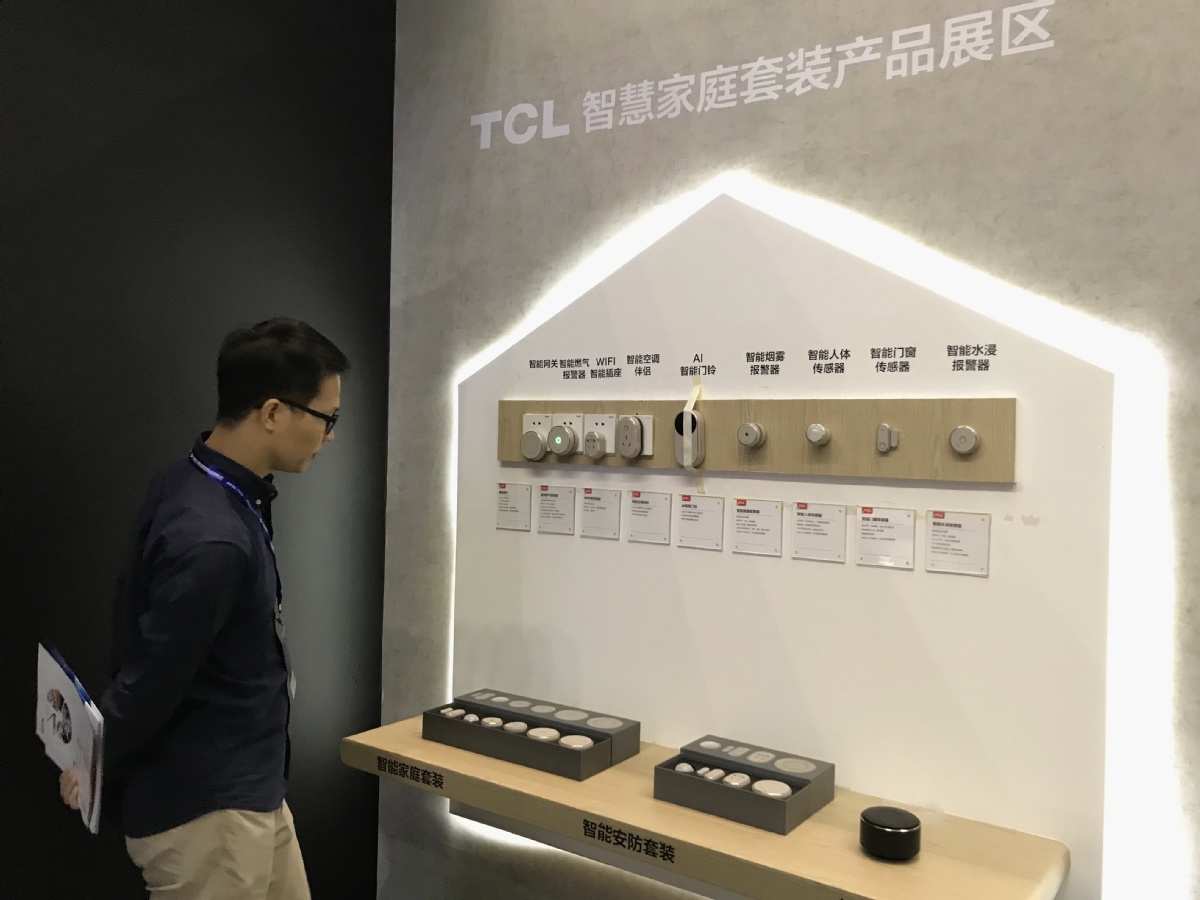Allianz Partners bullish on smart home industry in China
By Zheng Yiran | China Daily | Updated: 2019-11-04 10:21

By the year 2040, new homes will be digital fortresses that will be protected by security systems based on the occupants' biometrics and facial recognition software, and China may reach this tech milestone even earlier, said a latest report.
The report, released by French company Allianz Partners, a world leader in assistance and insurance solutions, pictured what a smart home will be like in 2040: Living with robots will be the norm, who will take over many daily household tasks and provide companionship for their owners. Homes will host virtual entertainment and educational experiences that are fully immersive and interactive.
"We expect robots to be doing everything, such as cleaning, cooking, ironing, picking the clothes for you, babysitting, helping the elderly people to get out of bed, and even chatting with you," said Sylvie Ouziel, CEO, Assistance, at Allianz Partners.
"Robots are expected to do more complex activities, such as emotionally engaging activities, and we expect human beings to develop some degree of attachment and bond with robots, as they have with pets," she said.
Specifically, as China is taking a lead in 5G technology, artificial intelligence, big data, etc, and the country is constantly constructing new buildings, it is more likely to achieve smart homes across the whole country ahead of time.
By the time that China realizes full coverage of 5G, the company will be ready to introduce its smart home business, said Ouziel.
Amazing connectivity is expected in the 5G era, so the advent of 7G in the future could lead to wonderful possibilities. According to the report, 7G will be the world standard for wireless communication technology in 2040 and it is likely to be at least 100,000 times faster than 5G.
"It will enable the rapid transfer of large design files, allowing the smart home of 2040 to become a 3D-printing center with the ability to make clothing, toys, sports equipment, tools and many other items.
"Owners will be able to dig down more deeply into household data, allowing them to create an ambient temperature in each area of the house, and control the air quality and energy consumption of each room, based on climate and weather forecasts," said the report.
During an exclusive interview, Allianz Partners shared details of the company's capabilities in the smart home sector in the foreseeable future.
Home temperature, humidity, etc, can be adjusted automatically to match the environment. In addition, odor levels, amount of light, noise in a room can be adjusted to reduce residents' stress. House interior aspects can change automatically to fit mood, season, holiday, and special events.
These will be seen in China ahead of time, because housing in China is more modern, and China has advanced supporting technologies, said Ouziel.
"Home appliances in China will go intelligent - that's an inevitable trend. The market has tremendous potential," said Ge Fengliang, deputy head of the China Household Appliances Academy.
Energy optimization will help smart homes to consume less energy. According to Allianz Partners, smart homes' energy reduction can be as high as 75 percent, with water use reduction reaching 66 percent. Car batteries can be used as nodes in the power grid to supply energy to smart homes. Therefore, the cost of a smart home won't be high.
As a company with a long history of assistance and insurance solutions in roadside assistance, health and automotive, expansion into the smart home sector seems a great leap. Ouziel explained that nowadays, cars are less centric to people's life.
"We are transforming from object-centric to consumer-centric. The few objects that people still own are housing and devices, and that's why insurance is moving from car insurance to home insurance and phone insurance. Therefore, we stepped into the home sector," she said.
China is definitely one of the company's targets. The report from Shenzhen-based Qianzhan Industry Research Institute showed that in 2017, China's smart home market totaled 334.2 billion yuan ($47.2 billion), growing 24.8 percent year-on-year. The market is estimated to maintain an annual compound growth rate of 21.4 percent until 2020, reaching 581.9 billion yuan.
According to Ouziel, China is now the company's business priority. The Chinese market has been growing very fast, where the company achieved annual double-digit growth over the past years. Therefore, Allianz Partners has been constantly investing in China and will increase its investment to stay in a better position to serve Chinese consumers.
























